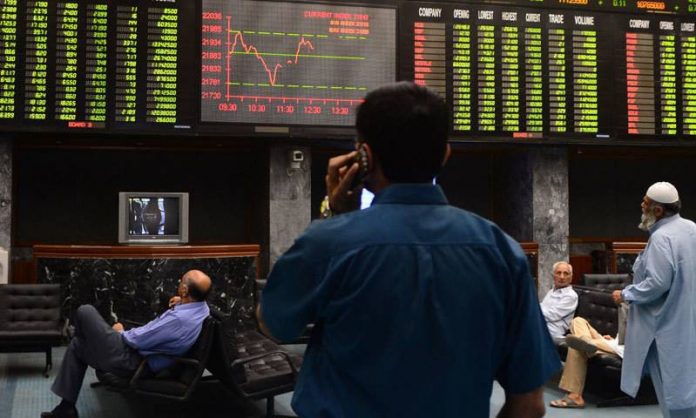KARACHI
The Pakistan Stock Exchange (PSX) kicked off yet another week in the red zone. Investors remained absent from the market, with no positive trigger to encourage buying.
The ambiguity over the political arena, and the fact that just three sessions were remaining before the long Eid break, forced investors into profit taking. Trend remained unchanged foreign investors, were net buyers of US$ 9.49 million in the last week.
The Securities and Exchange Commission of Pakistan (SECP) has approved nine amendments to the regulations for in-house financing. These allow brokers to continue funding share purchase from their own pockets and that too without seeking margins in cash, but the entire process shall now be documented.
The market volumes came down to 170.26 million as Worldcall Telecom Limited (WTL +4.51pc) led the table. The scripts had 15.42 million shares exchanged on the table. K-Electric Limited (KEL -1.42pc) followed with 10.81 million. Only 74.83 million shares were traded in the KSE 100 index scripts.
The benchmark KSE 100 index showed signs of weakness from early hours of trading. The index fell to an intraday low of 46,312.65 after falling from day’s high of 47,083.26. It settled lower by 265.22 points to 46,593.34. The KMI 30 index dropped 0.38pc while the KSE All Share Index lost 0.52pc. The advancers to decliners ratio stood at 114 to 209.
Hi-Tech Lubricants Limited (HTL +1.41pc) after closure of the market notified the exchange that the company’s first retail outlet/ HTL Express Service Center has commenced trail run of its primary services in Lahore.
Byco Petroleum Pakistan Limited (BYCO +5.21pc) flew to its second consecutive upper cap. The script has declined 5.30pc in the past year and 13.82pc in the last 6-months and reported an 88.36pc QoQ growth in the net profits to push earnings up to Rs 0.58 per share.




